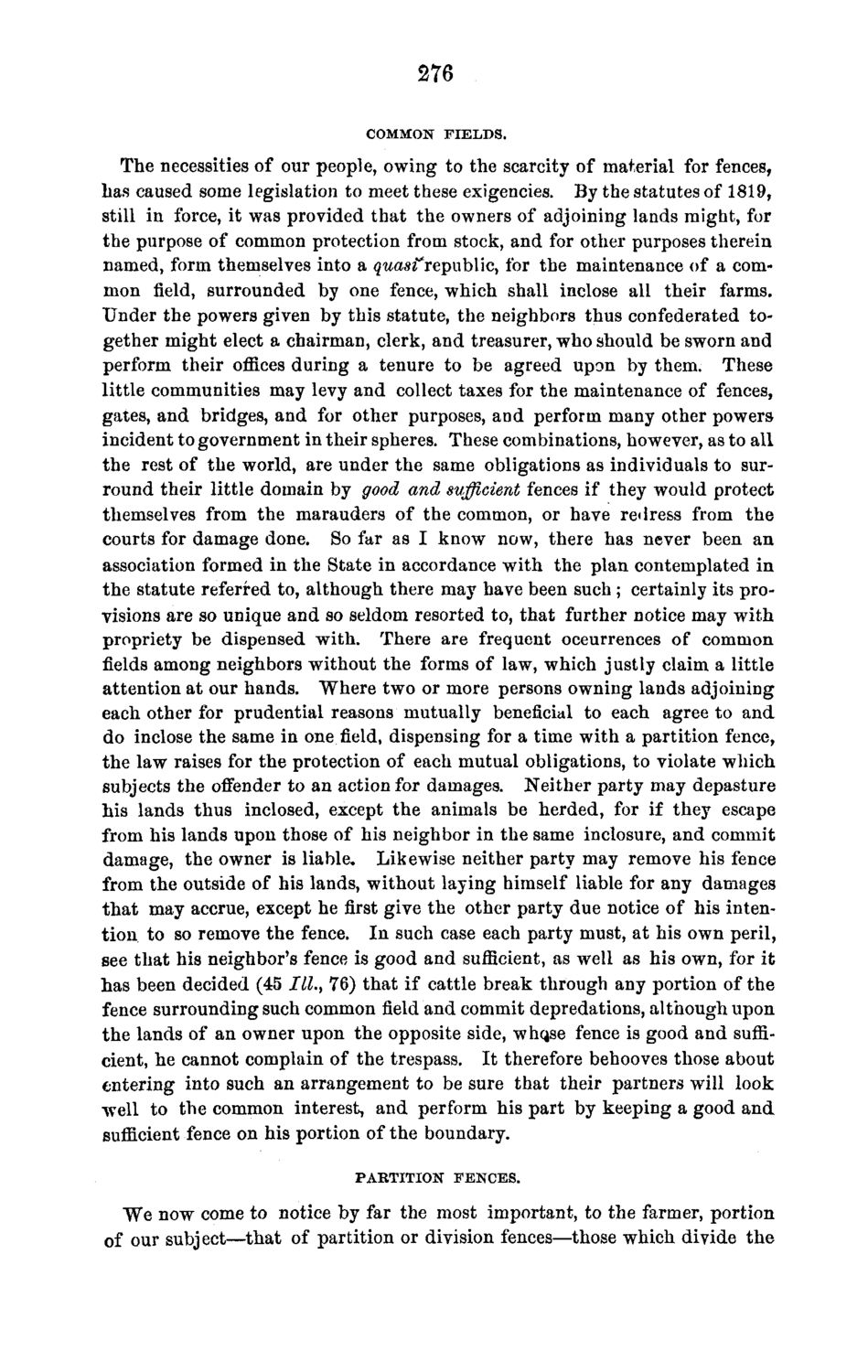| |
| |
Caption: Board of Trustees Minutes - 1870
This is a reduced-resolution page image for fast online browsing.

EXTRACTED TEXT FROM PAGE:
276 COMMON F I E L D S . The necessities of our people, owing to the scarcity of material for fences, has caused some legislation to meet these exigencies. By the statutes of 1819, still in force, it was provided that the owners of adjoining lands might, for the purpose of common protection from stock, and for other purposes therein named, form themselves into a quasfrepublic, for the maintenance of a common field, surrounded by one fence, which shall inclose all their farms. Under the powers given by this statute, the neighbors thus confederated together might elect a chairman, clerk, and treasurer, who should be sworn and perform their offices during a tenure to be agreed upon by them. These little communities may levy and collect taxes for the maintenance of fences, gates, and bridges, and for other purposes, and perform many other powers incident to government in their spheres. These combinations, however, as to all the rest of the world, are under the same obligations as individuals to surround their little domain by good and sufficient fences if they would protect themselves from the marauders of the common, or have redress from the courts for damage done. So far as I know now, there has never been an association formed in the State in accordance with the plan contemplated in the statute referred to, although there may have been such ; certainly its provisions are so unique and so seldom resorted to, that further notice may with propriety be dispensed with. There are frequent occurrences of common fields among neighbors without the forms of law, which justly claim a little attention at our hands. Where two or more persons owning lands adjoining each other for prudential reasons mutually beneficial to each agree to and do inclose the same in one field, dispensing for a time with a partition fence, the law raises for the protection of each mutual obligations, to violate which subjects the offender to an action for damages. Neither party may depasture his lands thus inclosed, except the animals be herded, for if they escape from his lands upon those of his neighbor in the same inclosure, and commit damage, the owner is liable. Likewise neither party may remove his fence from the outside of his lands, without laying himself liable for any damages that may accrue, except he first give the other party due notice of his intention to so remove the fence. In such case each party must, at his own peril, see that his neighbor's fence is good and sufficient, as well as his own, for it has been decided (45 III., 76) that if cattle break through any portion of the fence surrounding such common field and commit depredations, although upon the lands of an owner upon the opposite side, whQse fence is good and sufficient, he cannot complain of the trespass. It therefore behooves those about entering into such an arrangement to be sure that their partners will look well to the common interest, and perform his part by keeping a good and sufficient fence on his portion of the boundary. PARTITION FENCES. We now come to notice by far the most important, to the farmer, portion of our subject—that of partition or division fences—those which divide the
| |